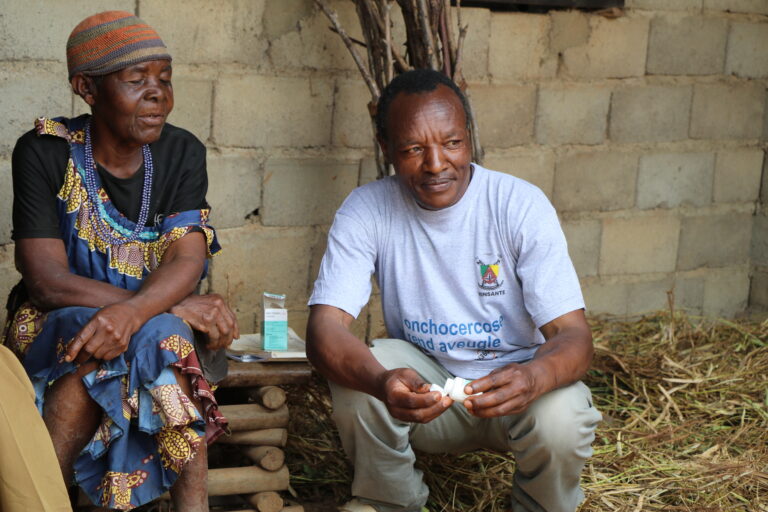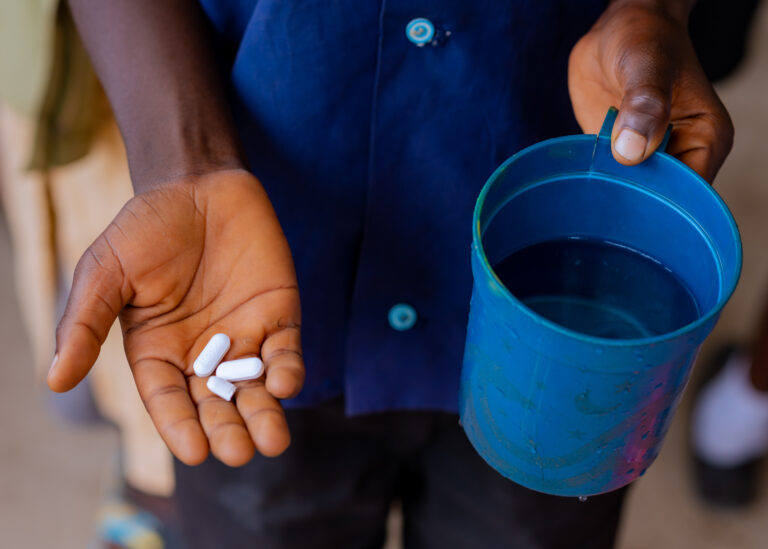Combatting Malnutrition in Mozambique Communities
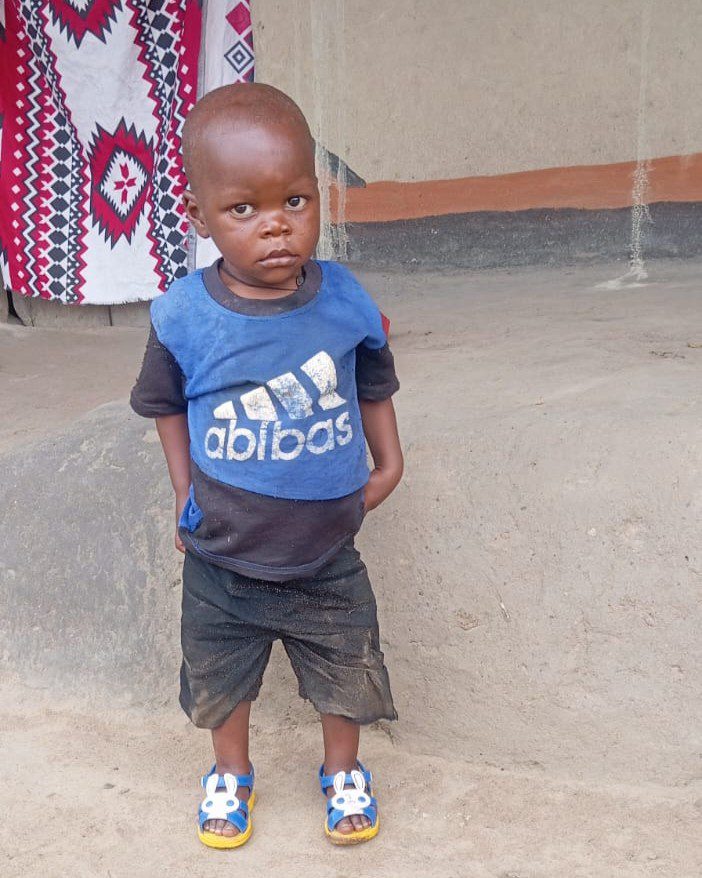
The sounds of children playing in the fields echo through the air as parents tend to their crops in Chiguebe in northwestern Mozambique. But for Efero Wilson, an unusual quiet hung over her home in the rural Macanga district. Her nearly two-year-old son, Vasco Patreque, was listless and wasn’t interested in playing. She was concerned that he also had unexplained swelling in some areas of his body.
“I didn’t know what was going on,” she says. “We thought it might be something that would pass, so we tried the traditional remedies of the village. But nothing worked, and my heart tightened more and more.”
Osten Divarassoni, a community health worker trained by Helen Keller Intl, examined Vasco when he visited the village to conduct screenings for malnutrition and recognized that Vasco’s condition was very serious. His swelling, known as edema, was a sign of severe acute malnutrition, or severe wasting, the deadliest form of malnutrition.
He urged Efero to immediately bring her son to the nearby Bawe Health Center. There, the diagnosis was quickly confirmed, and healthcare workers determined Vasco needed more specialized care. He was transferred to the larger Furancungo Health Center about 35 miles away, where he spent 18 days receiving treatment for malnutrition.
Bringing Malnutrition Care to the Community
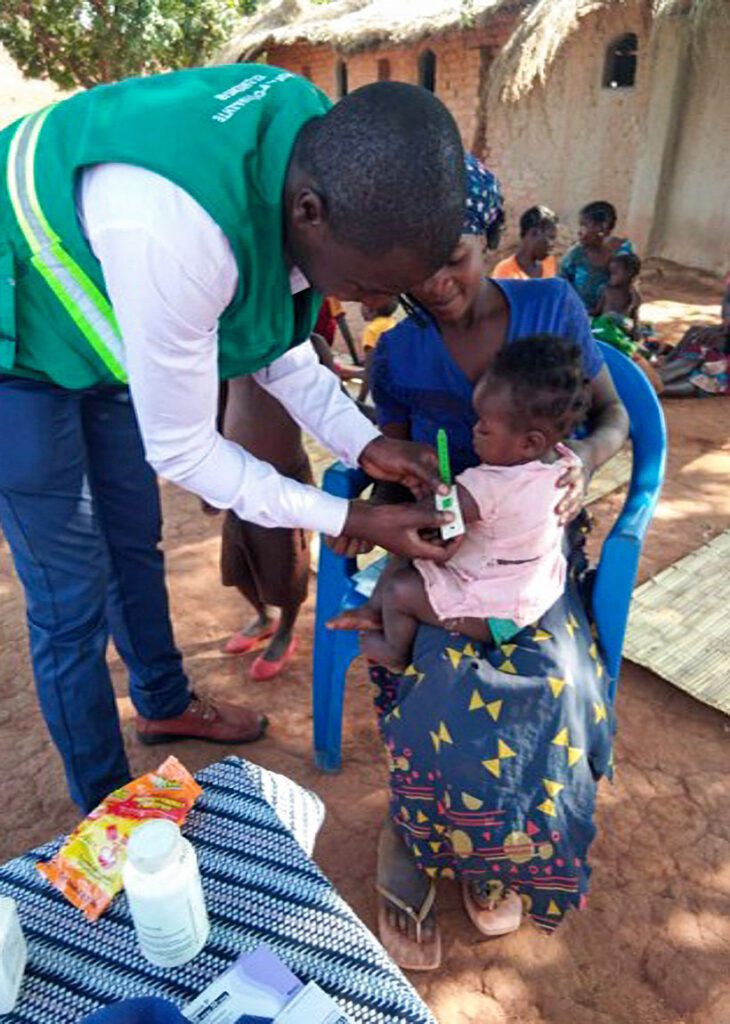
Although Mozambique has made significant progress improving health and nutrition in recent years, malnutrition among children remains a significant challenge. About 38% of children under five are stunted due to malnutrition, and over 50% of the population cannot afford a nutritious diet. Ongoing conflict and increasingly extreme weather have impeded efforts to improve food security across the country.
Many people also struggle to access healthcare, and more than 60% of the country’s 34.9 million people must travel an hour or more to reach a health facility. Without regular health services, many cases of malnutrition may go undiagnosed and untreated, putting children’s health and lives at risk.
Helen Keller has partnered with the government of Mozambique to improve screening and treatment for malnutrition across two districts in the Tete Province, Macanga, where Vasco lives, and nearby Marara. The partnership aims to bring malnutrition screening and treatment to communities to make them more accessible and promote good nutrition practices with families.
Community health workers like Osten receive training in identifying, treating, and making referrals for acute malnutrition. When possible, children are treated for malnutrition at home, while severe cases of malnutrition, like Vasco’s, are referred to health centers for treatment. Last year, Helen Keller supported malnutrition screening for more than 43,000 children in Mozambique and provided treatment to the 65% who were identified as moderately or severely malnourished.
Community health workers also educate parents and caregivers on good nutrition and hygiene practices. These sessions include cooking demonstrations so families can learn how to make nutritious meals using locally available ingredients.
Malnutrition Recovery Motivates a Community
During his time at Furancungo Health Center, Vasco quickly began to regain his strength and health, much to the relief of his mother. By the time he left the hospital, his swelling had subsided, and Vasco was once again an upbeat, energetic toddler.
“Seeing my son so weak was devastating, but every day in the hospital gave me more strength,” Efero says.
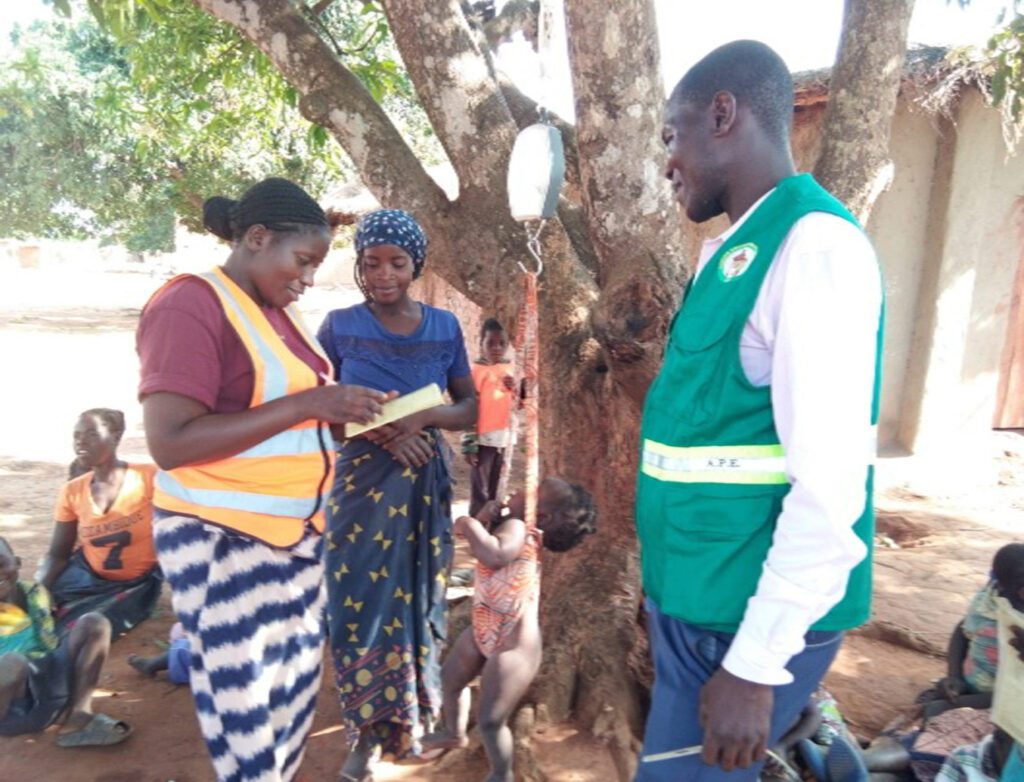
Community health workers weigh a baby during a screening.
She also took part in community cooking demonstrations that promoted affordable, nutritious meal options that would help support Vasco’s recovery and health, and learned about good hygiene to help prevent the spread of illnesses.
According to Osten, other families in the community were also motivated to proactively seek out health services, including malnutrition screenings, and learn more about nutrition.
“Before, many mothers did not participate in the lectures or doubted the importance of our advice,” he says. “Vasco’s story has shown everyone that prevention and care can save lives.”
Efero is grateful for the treatment her son received and that he now has a second chance to grow up healthy.
“When I look at Vasco now, I see more than my son. I see a reason to keep believing,” she says. “He is my strength and my inspiration.”


